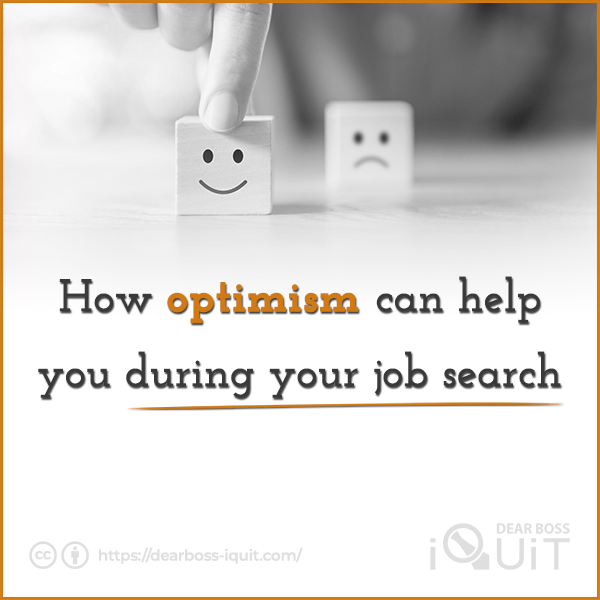A long, extensive job search can demoralize anyone. You put in application after application, but there are no replies. You go through seven rounds of interviews just to be rejected for another applicant. You step out of your comfort zone and contact your network only to hear crickets.
Repeating the process week after week, month after month is enough to make anyone pessimistic.
However, staying optimistic is the key to success. Optimists are often more motivated, resilient, and likable, giving them clear advantages over pessimists in the job market.
Even though searching for a job can be draining and you’re probably starting to think you will never leave your current job, it’s important to develop an optimistic mindset. Let’s delve into more about what optimism is, how it can help you in the job search, and some tips on how to develop a more positive mindset.
What is Optimism?
So what does optimism look like? According to BetterHelp, optimism is an outlook where a person believes that life is a positive experience. They think that people and things are fundamentally “good.” When they encounter obstacles in life, they predict the outcome will be positive.
You’re probably rolling your eyes at this definition. Like many people, you’ve probably encountered many hardships and challenges in life that can make it difficult to be optimistic. Believing that people are good or that a challenge will work in your favor may seem pointless.
But this is exactly the attitude that is necessary to achieve your career goals, including finding a new job. Optimism not only makes it more likely that you will find a new job but it makes you a more appealing candidate. Read on to learn all the ways that optimism can help you find a new career.
5 Ways That Optimism Can Help You Find A New Job
1. Optimism Makes You Resilient
Since optimists believe that all challenges will work out in their favor, they tend to have more resilience. When optimists believe that they will succeed, they are less likely to give up.
When finding out that they have been passed over for another candidate, a pessimist is more likely to beat themselves up over it and allow the rejection to negatively affect their job search. An optimistic can easily bounce back after the rejection and start the process again.
2. Optimism Increases Your Self-worth
Optimistic people tend to have greater self-worth than pessimists. And since they think more highly of themselves, they believe that they deserve better.
If you are stuck in a dead-end job or toxic environment, you need an optimistic mindset to find the better job that you deserve. Some pessimists may stay in their awful job because they believe they belong there. They don’t search for a better job because they don’t believe they deserve success.
Optimists value themselves. You will rarely see an optimist in a toxic work environment for long. Once they realize a job is not a good fit or is negatively affecting their mental health, they immediately search for something better.
3. Optimism Motivates You
When optimists are unhappy with their job, they are more likely to take action to improve their careers.
Not only that, they will take action much earlier than pessimists. Pessimists may take action towards their career goals, but they usually take much longer to start. They also do it with less enthusiasm, ensuring they are less likely to succeed.
Deep down, they may believe that nothing will change and that they will never find something better, so they may make a half-hearted attempt to improve their resume and apply to a few jobs before giving up.
Optimists will start earlier, put more effort into the search, and keep going at it longer. They remain self-motivated, only stopping once they have achieved their goal.
4. Optimism Makes You More Likable
I’m going to be brutally honest: optimists are just more likable.
Think about a coworker or acquaintance that complains a lot. Do you enjoy being around them? Probably not.
Pessimists and complainers drain the energy of the people around them. Therefore, no one wants to spend time with them, meaning they are less likely to get hired or promoted.
So if you had to hire someone and it came down to two candidates, who would you choose? The pessimist who doesn’t have any motivation or career goals and has a habit of complaining about his job or the optimist who has clear goals, ambition, motivation, and ideas?
5. Optimism Prevents Burnout
Since optimists believe that their work will result in a positive outcome, they are more likely to keep going. As mentioned before, they are more resilient so they are less likely to burn out during the job search.
Furthermore, once they start their new job, they will have more energy and enthusiasm at work, solidifying the hiring team’s belief that they hired the right person.
In fact, according to the Harvard Business Review, optimists are five times less likely to experience burnout than pessimists. There are also three times more likely to be engaged in their new jobs.
This is exemplified in a test developed by Martin Seligman for Metlife’s hiring process. The test was designed to determine whether a prospective sales candidate was an optimist or pessimist. Seligman was convinced that optimism bred success, so he encouraged Metlife to hire more optimists.
After a few years of patience, Seligman was proven correct. Over time, Metlife found that the optimists they hired earned up to 57% more sales than the pessimists.
Tips to Improve Your Optimism
Now that you know how optimism can help in your job search, you’re probably wondering how you can develop a more positive mindset. Though optimism is a muscle that you need to train over time, there are plenty of great tips to help you see the glass as half-full.
Below are some tips to help you develop an optimistic mindset:
- Create a gratitude journal
- Practice mindfulness
- State positive mantras and affirmation
- Spend time with optimistic people
- Take time to do things you enjoy
- Actively work on your goals (whether career or personal)
In addition to adding in positive habits and hobbies, it’s also important to suck out the negativity in your life.
For example, if your coworkers are pessimistic about you finding another job, then limit your conversations with them. Set certain boundaries during those conversations and make sure to only converse about work. Or, at the very least, avoid letting them change your thinking about your career change.
You should also monitor your own thoughts for any pessimism. Negative thoughts can sneak up on you, so it’s important to be mindful of how you view your potential and chances of success. Having fewer negative thoughts will be less of a drain on you, so you will have more energy and motivation to work towards your career goals.
Check out BetterHelp for even more tips on how to stay optimistic, as well as other ways optimism can improve your life.


